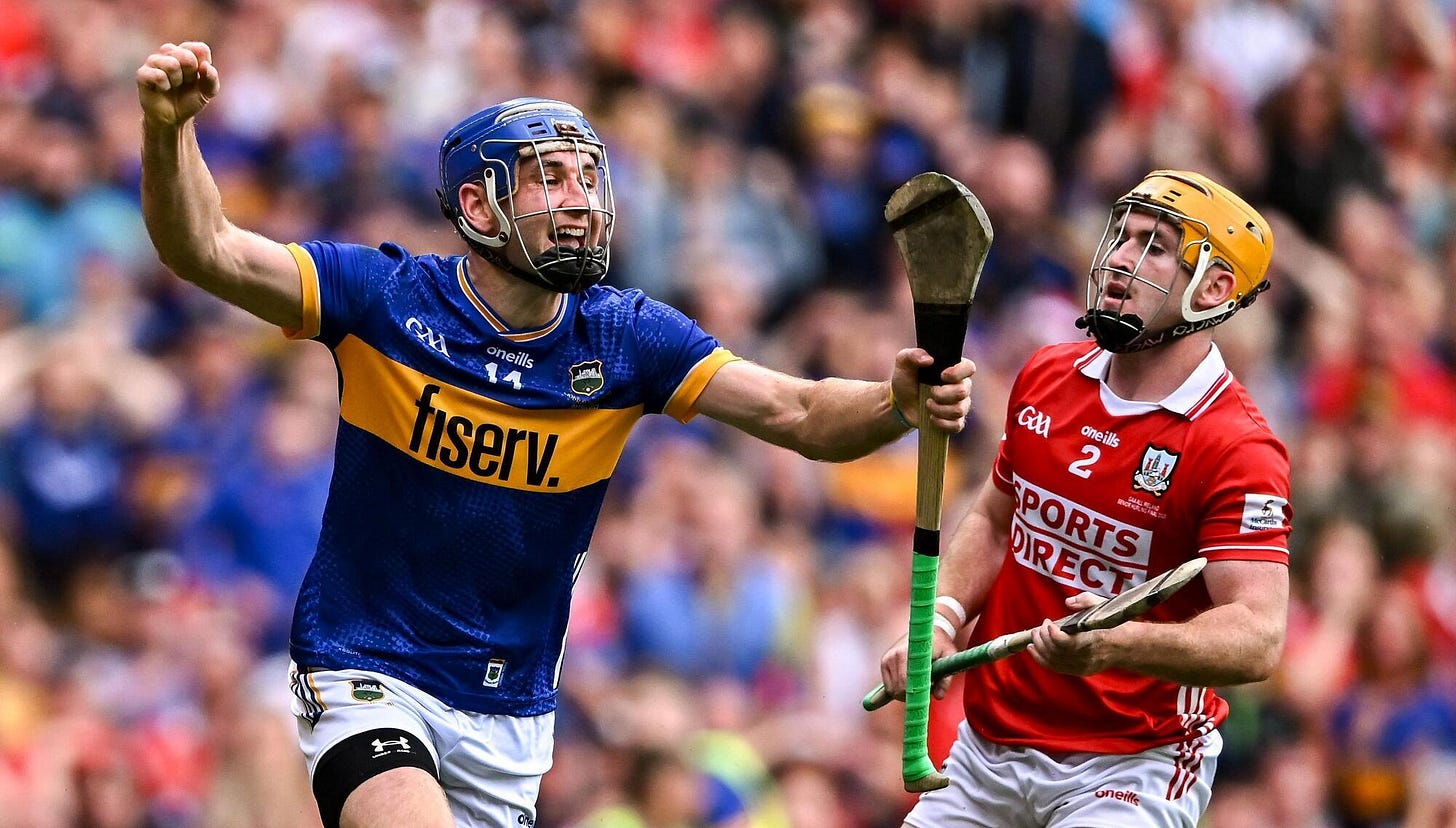What the US can learn from hurling, the world's best sport
It's not the rules that confuse us
Two hungover Americans walk into an Irish pub in Prague and watch the hurling. This isn’t the start of a joke. This is how I discovered the most exciting and confounding sport in the world.
With half his body jammed in a closet where the controls were, and the other half turned toward the TVs on the wall, the proprietor bou…




